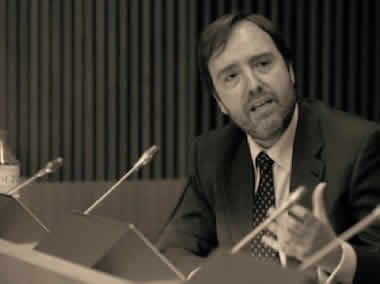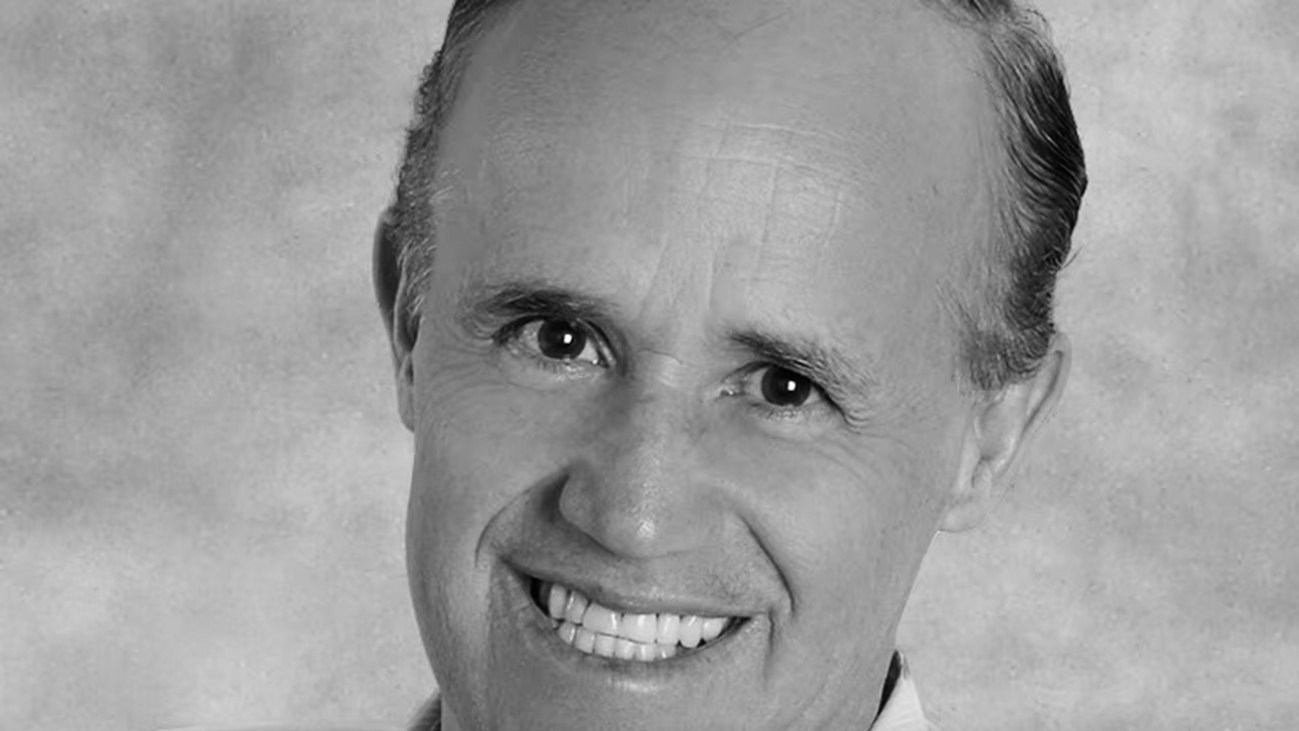
Last 25th of july the Regulations of internet operated games in Colombia was published and placed into action by resolution of the President of Coljuegos; which as most of you know is the public company that is in charge of administrating the monopoly of gaming and in such acts as a good medium to regulate such activities.
As well as the regulations the document of Technical requirements for internet operated games and the public data model of the system of inspection (equivalent to the data model of monitoring in spain) were published.
With the publication of these three documents and failing to publish the resolution that would establish the requisites to access the subscription of concessional contracts for internet gaming; COLJUEGOS has completed the process of regulating online gaming and layed the bases for the regulated development of these types of game in the Colombian territory.
The regulation of online gambling has been a long process and one in which COLJUEGOS has had to overcome not only the intrinsic difficulty of any regulatory task, but also the vertigo to place Colombia as the first country in its region to regulate online gambling. By doing so in a way that in my opinion leads to the start of a new market and incorporates ways and solutions that have shown to be successful in other conditions.
Much(and a lot of the good) of the new Colombian norms have como from Spanish regulation which are known to also have come and preceded from European regulations(mainly Italian and French).
As we say, the regulation of a global phenomenon such as online gaming requires study and evaluation of the solutions adopted by other jurisdictions, it requires innovation on issues that were not resolved by the various precedents jurisdictions or that have proven poorly resolved by these and, in any case, the precise adaptation of the measures to the particular circumstances of the country that regulates included.
In this process the new Colombian regulation has taken the best of the Spanish legislation and improved or prevented many measures that hindered or could even affect market development. In addition it has sought the engagement of all these measure in a very different legal and social environment from the Spanish. Only time will show if COLJUEGOS been successful with his work, but I am not mistaken in saying that in the purely regulatory aspect we have a magnificent legislation that is on the right track of a competitive market development, freedom of operators game, not to mention the public control of the activity and the protection of players.
With certainty Colombian rules of online gaming has included from the beginning an extensive catalog of games, of course, much more than that with which we started in spain five years ago and that only a few games were excluded ike, for example, betting on virtual events. It is without doubt more than enough catalog, which provides considerable scope for operators to design their offer and, moreover, if there were to prove insufficient, it is easy to innovate to COLJUEGOS.
The norms help avoid unnecessary authorizations and windows of opportunity for the obtainment concessional contracts, sufficing COLJUEGOS communication and providing the necessary certification for the operation of new games certifications once you have a contract.
The new regulation published by COLJUEGOS has opened the doors to what is sure to be a healthy development of the Colombian market for online gaming and the fact that they have already been made known to operators in other markets (primarily in the Spanish market technical solutions), greatly facilitate entry to many of them in a market that is already in its own right the gateway to online gambling regulated in Latin America.
Colombia is an attractive country with a population slightly under fifty million, with sustained economic growth and outstanding legal certainty. It is an important focus of investor attention in Latin America and, as a result of the new regulations on online gambling as well as the requirements still left to be subscribed for the signing of a contract that allows the operation of this kind of game, is a country where an operator from Spain can move its online operations with ease due to little investment costs and few operational changes.
The economic conditions of the operation are much simpler than in Spain and require much less effort from the operator that is usually required under the Spanish legislation, particularly in regards to guarantees that must be provided and initially placed in the environment of 180,000 euros. If to that we add some exploitment rights (for all practical purposes are the Colombian equivalent to the tax on gambling activities) 15% of net revenues (for games to return to the player over 83%), it is not difficult to see that this is a market that no operator should overlook.
Unfortunately, not everything could be good news and even with the favorable regulation, we find a significant drawback: the subjection of gaming activity to VAT (at a rate of 16%) in addition to the application windfall tax on winnings from games.
In both cases the problems come from the judicial-regulatory branches of Colombia, which through COLJUEGOS there have been several attempts at a solution, but without a doubt still remain troubling for any interested operator trying to partake in the new market. Due to this and without trying to minimize the impact both taxes present on the development of the game activities. Also it cant be said enough that its not a question about a novelty for Colombian citizens but a measure of the same nature would not have the same effects as it would in Europe. Although the VAT exemption would demonstrate a perfectly traced regulation it is still a great reglation that turns Colombia into the ideal place to start a future expansion for the operators currently in spain.
In short, Colombia is already the first Latin American country to regulate online gambling. It is the first that regulates and moreover, in this I personally express my opinion, the first country to correctly decide the path to follow. Only time will tell if, in addition to being a pioneer in online gaming regulation in Latin America, Colombia will also be the source of inspiration for future regulations in their environment.
I have no doubt that for technical and legal quality deserves it, but I am aware that taking the right path, the one that favors the citizens and the market is not always easy in the regulatory environment and much less in the framework of regulation play.
That has been the merit of COLJUEGOS

I loved

I liked

I dont liked

Unfortunate, if not infamous, was the intervention of Marco Emilio, president of Coljuegos, during the inauguration of the event, and the opening of the two assemblies of the associations, at the last GATexpo in Cartagena.

Considering that he is a person alien to the industry and especially to those located, he should demonstrate less servility towards permanent bets and respect, as in the army, the seniority of all of us. Many, if not all, of us feel offended by the derogatory comments and ignorance of the enormous effort of people like Elizabeth Maya and Evert Montero who have prioritized the implementation and good practices regarding money laundering. assets.
In the best style of the old policy - which is understandable - it has turned Coljuegos into another state institution where the “aja” is already a reference to accelerate the permits that have been held up for months, most likely to soften the (the) sorry businessman who will end up leaving the envelope under the trash can there and come pick it up on Monday...

When asked about Coljuegos, he only limits himself to reading the speech that has been passed to him from the office of his advisors and that is where the verbiage about lotteries, chances and bets comes to the surface of his lips and there is nothing else on the page From Coljuegos there are only approvals for draws, perks, new regulations, facilities, opening of markets for permanent bets and for a permit from an operator, there is no time... of course sorry, as he said at the Fair: the illegals and thugs from the locals and casinos who have earned that reputation through their own fault should go to the prosecutor's office to report because I don't know anything.
It's embarrassing when he starts talking about technology and the trip to Las Vegas - sponsored of course - and that on an important news network he said that by seeing the machines he knew how they paid, oh no! So, he dedicates himself to gambling and makes more money... or he writes a book and becomes a millionaire, and at the same time destroys all the casinos in the world because he is going to reveal the secret.
Since his arrival, Coljuegos has gone from more to less and it is not necessary to be a fortune teller to know that he came to the entity to do what he had to do regardless of the cost, in the end he is not the one who pays, it is us and they pay him for that.
What else to expect from the very corrupt, very old school.

Gambling Ins.
A gavel, a gong, a bell; the three symbols of a fresh day of trading at the New York Stock Exchange (NYSE). Although the tool itself has changed over the years, the act of the ‘opening bell’ has been solidified across public trading houses - even though Nasdaq doesn’t have a physical trading floor, the house still has an opening bell ceremony each day. That’s how strong it is.
However, more companies, with some high-profile examples within gaming, are pulling away from this iconic morning routine and instead favoring the quiet life of private equity.
But why are companies going private?
There are a few reasons why some big gambling companies are going private.
First of all, when a company goes public, there is a far greater level of administration and bureaucracy. A private company therefore has more control over its business, without having to please multiple shareholders.
Once a company goes private, the business is in the hands of a few select people; either the private equity firm or the family controlling the company. This makes it infinitely easier to make decisions and act on them.
There’s also less volatility from being on the publicly traded stock market, too. The stock market has quite infamous ups and downs, but unless you’ve been living under a rock for the past five years, you’ve probably noticed some global events that affected the economy quite severely.
If anything, this proves that there’s no set path to success for companies; going public is no longer a symbol of ‘making it’ but should instead be analysed as a viable strategy, rather than the only strategy
One of the biggest positives of being publicly traded, however, is access to capital. It used to be one of the only ways companies could get funding for projects, which is why going public was historically seen as the end goal for many businesses in the past.
But this isn’t the case anymore. Even as far back as 2018, IPOs brought in $50.3bn in the tech sector, while private equity firms invested $130.9bn.
Some companies never went public in the first place.
Once a company goes private, the business is in the hands of a few select people; either the private equity firm or the family controlling the company. This makes it infinitely easier to make decisions and act on them. The biggest example in gambling is bet365, which has been private since it launched in 2000, owned and operated by the Coates family. On the supplier side, Interblock is a huge firm one would assume is NYSE-listed but has remained private, in 2022 being acquired by (you guessed it, private equity) funds managed by Oaktree Capital Management.
So perhaps we’ll see a new era of company ownership going forward, where gaming companies won’t be afraid to rely on private equity, rather than face the public eye on the stock market. Is it time for more casino and sports betting companies to take a gamble on their products and boot out the shareholders and their opinions for good?

A report conducted by YieldSec and commissioned by the Campaign for Fairer Gambling (CFG) suggests the illegal sports betting and online casino markets are far outpacing the legal betting market.

The report says 103 legal operators (both online casino and sports betting apps) target U.S. customers, while there are 860 illegal operators targeting U.S. customers. The report says those illegal operators generated $40.9 billion in gross gaming revenue in 2023 compared to $16.9 billion for legal operators.
The report even estimates the amount wagered on the 2024 Super Bowl via illegal operators was $500 million more than the amount wagered through illegal operators in 2023.
“The black market is alive and well in America. Legalizing iGambling was never going to adequately weaken the illegals,” CFG founder Derek Webb said in a press release. “But the presence of the black market has served as a useful foil — the legal gambling sector’s main rationalization for expansion.”
“Substitution from illegals to legals is simply not happening at the pace it should – illegals are used as brands of choice and convenience, with some substitution to legals for offers and account opening incentives, when available, as with the Super Bowl,” the report concludes.

In this week of reflection, we bring you again some capsules, which regardless of your creed, have small messages that we hope you will take advantage of to improve your life and your relationship with your environment and your peers; Let's take these days to put our ideas in order and move forward in this enormous challenge of being better people and being happy.

Be aware that the arrogant ego loves to change others, control them, manipulate, and submit.
That ego is the self without love and without God, proud, denied humility and, therefore, prisoner. It is impossible to love without humility because the proud do not understand, do not listen, do not dialogue, and offend.
He does not forgive or ask for forgiveness, he dominates, subdues, despises and believes he is right.
A wise man said: “All evils spring from pride, which is lack of love, and good things come with humility.”
Ego it means “I” in Latin and there are three kinds of egos:
1. Loving ego, listen to it and follow it.
2. Proud ego, give it many doses of humility, but it is not bad. Nothing is.
3. Defective ego, it focuses only on the negative and you must give it self-love and security.

Author: Gonzalo Gallo He is a Colombian writer and former priest. He was born in Medellín, Antioquia. Gallo belonged to the Discalced Carmelites community. Gallo spent 22 of his 24 years of priesthood in the city of Cali, where he became popular among other things for his massive masses in the city's Eucharistic Temple1, in addition to his style, humor and social works. “I cultivate several hobbies because I see that the more lights you turn on in your life, the less shadows bring down your spirits. I feel that in my spirituality I feel like a lover and admirer of Jesus and Buddha, without being in a religion.”

Pop singer Bruno Mars has been in the spotlight recently for reportedly racking up $50 million in gambling debts at the casino he’s been performing at — though MGM Resorts said in a statement to MarketWatch on Thursday that this speculation is “completely false,” and that Mars “has no debt with MGM.”
One Grammy-winning artist aside, gambling poses serious financial challenges to millions of Americans, both at in-person casinos and online.
About 2.5 million adults in the U.S. are estimated to have a severe gambling problem, while another 5 million to 8 million have mild or moderate gambling problems, according to the nonprofit National Council on Problem Gambling. It impacts regular consumers and celebrities alike, with golf star Phil Mickelson recently opening up about his gambling addiction on Instagram. Mars has said he played cards to make money before his music career
Sports gambling has grown significantly in recent years amid a wave of legalization across the country that has made it easier for people to place bets on their phones. Americans legally wagered $119.84 billion on sports in 2023, up 27.8% from the previous year, according to the American Gaming Association. Since the U.S. Supreme Court struck down the Professional and Amateur Sports Protection Act (PASPA) in 2018, it’s been up to individual states to legalize sports betting, and it’s now legal in 38 states plus Washington, D.C.
Some people who can’t control their gambling problem have gambling disorder, a diagnosable condition that’s associated with a higher rate of suicide.
Gambling’s financial impact can be severe: The average debt generated by men with a gambling problem ranges from $55,000 to $90,000, while for women it’s $15,000, according to Debt.org, an informational website about debt maintained by the nonprofit InCharge Education Foundation. Many withdraw cash advances on their personal lines of credit and rack up expenses on their credit cards to gamble.
Some people also borrow money, called a casino marker, from casinos by filling out an application on-site; legally, this is handled differently from a short-term loan.
According to online materials from Las Vegas attorney Joel Mann, “Under Nevada law, casino markers are not considered a loan. Rather, they are like a check that you have written to the casino. If you do not have the money in the bank to cover a marker when it comes due, you can face serious criminal charges.”
Some people who can’t control their gambling problem have gambling disorder, a diagnosable condition that’s associated with a higher rate of suicide.




